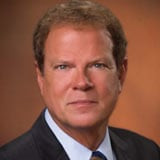He called the 2009 stock market low the buying opportunity of a lifetime. Now, Jim Stack updates his analysis of the presidential cycle, and what it means for investors in 2012.
Jim, it’s been a little bit different, hasn’t it, than the normal presidential cycle?
This is not your typical four-year presidential election cycle. Typically, the third year is the biggest winner in the stock market, and last year was completely flat. Part of the reason is because the previous two years, 2009 and 2010, stole some of the profits from 2011.
Even with that said, what investors need to keep in mind is that election years—presidential election years in particular—are more stable for the markets. It is very rare to see a recession. It is even more rare to see a bear market.
In fact, there is only one presidential election year since 1940 that has seen a double-digit decline in the Dow, and that was 2008. Now on the flip side of the coin, if you look at how many presidential election years have seen double-digit gains since 1940, there have been seven of them. Those are the kind of odds that investors have to like this year.
Absolutely. Does it make any difference whether it is a Democrat or a Republican that is elected?
It is always debatable, and it depends on which timeframe you run the study over—particularly whether you include the Reagan years, which were tremendous in the stock market, or the Clinton years, which were even better for the stock market.
I think one of the important things to keep in mind is that it doesn’t matter who is elected, but the market very often will tell you whether the incumbent party is going to hold the White House. If you look at the two months, the 60 days leading up to the presidential election, the market has forecast whether the incumbent party has held the White House 90% of the time…in every instance except for three out of the past 110 years. That is a pretty good record.
In other words, if the market is up in the two months prior to Election Day, chances are the Democrats will hold the White House this year. If the market is down, then chances are it is going to turn over.
That is interesting. So what does an investor do? Can you play that?
Well, you can play it. But again, that is one of those statistical quirks about election cycles.
I think the one thing you can count on is there is not going to be anything passed legislatively to upset the apple cart. Both this administration and Congress, as well as the Federal Reserve, do not want to create any speed bumps for the economy going into the election.
That makes sense.
And that is one reason why election years are historically more stable.
You mentioned stability. We have had so much volatility in the last year or so…do you think that is actually going to lessen for a while?
Yeah, I think it will, and the reason is that most of the volatility that we have seen has been in investor emotions rather than the market.
If you look at intraday volatility—how far this market swings during the day, or from day to day—statistically 2011 was no more volatile than 2010. It is just that investor emotions were swept on this rollercoaster of fear from one crisis to another crisis to another potential crisis. It is the emotions that have really been on this volatility swing.
Related Reading:










